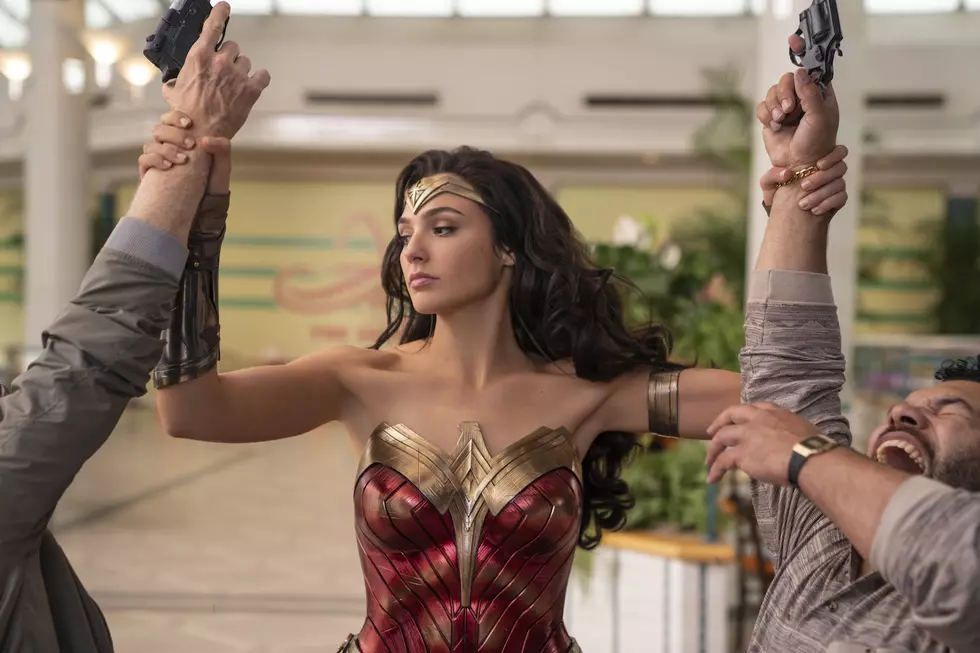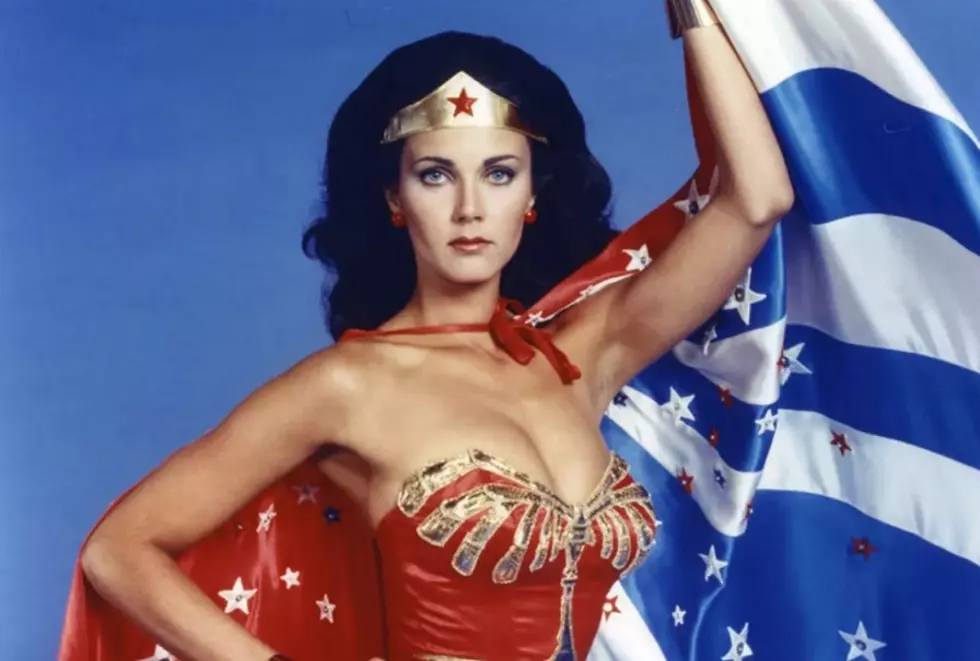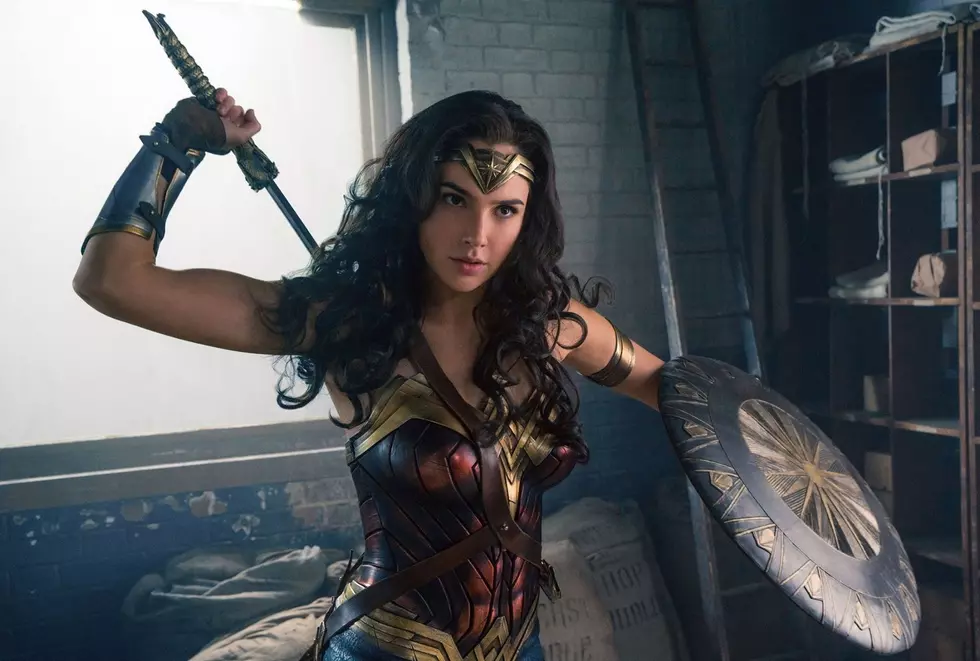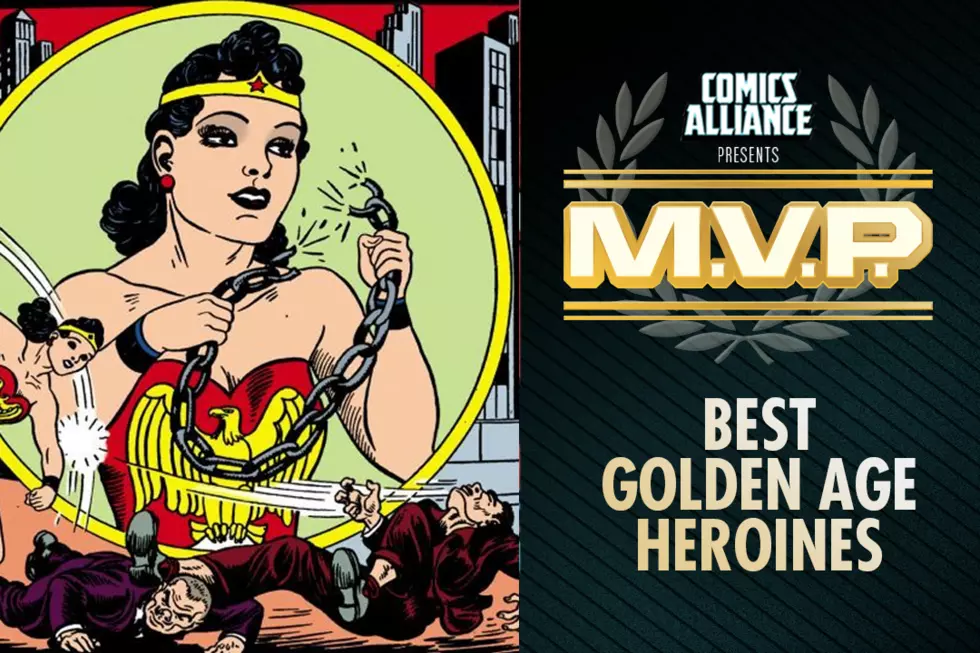
The ‘F’ Word: Wonder Woman’s Feminism Shouldn’t Be Covered Up
DC has a Wonder Woman problem. Or perhaps more accurately, Wonder Woman has a DC problem. The idea of Wonder Woman as a feminist icon is so imprinted in her history, and in analysis of the character, that separating her from feminism should be near impossible. But that hasn’t stopped people trying.
Much has been written over the years about the ebb and flow of feminism in the Wonder Woman comics, the relative feminism of her appearances on the small screen, and her role as an icon for the movement. A recent interview with the new Wonder Woman creative team of Meredith Finch and David Finch has brought the topic back into focus.
To give a bit of background for those who may need it, the character’s creator, William Moulton Marston, was actually not a feminist – he didn't believe that men and women were equal; he believed that women were superior to men. Most of the early Wonder Woman stories were about women dominating men to make the world a better place.
This isn’t feminism, because feminism is about all genders being equal. It’s an interesting world view, though, and one Marston believed would see fruition through the events of World War II. Women were gaining power as Wonder Woman’s story began, thanks to more women entering the work place to replace men who had gone to fight.
The character’s roots in an island made up entirely of women explains any belief she had in female superiority. However, Wonder Woman has evolved to be more of a true feminist.
Over the years, Wonder Woman’s story arcs have ranged from feminism to par-for-the-superheroine-course. Like all other female characters, she’s too often used as a prop in storylines about male characters, but unlike most other female characters she had a unique tool: her own television show.
That show, occurring when it did in the 1970s, struck a chord with women of all ages and cemented Wonder Woman’s place in the culture. She had already famously featured on the cover of the first issue of the feminist magazine Ms. in 1972, and for decades after, regardless of the quality of the comics, Wonder Woman has remained a feminist icon.
But she’s not just a feminist icon – she’s also one of the greatest super heroes of all time, and one of DC’s great trinity of characters alongside Batman and Superman.
What’s interesting about Wonder Woman is that people care more often about her as a figure than about her as a character in stories. DC has struggled with the character, but to its credit has continued to publish her comics even though it is no longer required to do so just to retain the rights.
The problem DC has with Wonder Woman is that there seems to be no clear vision of what the character should be from moment to moment. Too often, each creative team wants to try something new to define the character their own way without consideration of coherence.
Visually, the character has often been on-point – many fans can point to their favorite Wonder Woman artists more easily than their favorite Wonder Woman writers. Still, writers like Greg Rucka, George Perez, and Gail Simone have produced critically and/or fan acclaimed work on the character.
Diane Nelson, DC’s president, commented on the difficulties of making a Wonder Woman movie last year, saying, “We have to get her right, we have to. She is such an icon for both genders and all ages and for people who love the original TV show and people who read the comics now. I think one of the biggest challenges at the company is getting that right on any size screen. The reasons why are probably pretty subjective: She doesn't have the single, clear, compelling story that everyone knows and recognizes.”
Is it truly easier to point to a single, clear, compelling story for a character like, say, Green Lantern, than to do the same for Wonder Woman? If your answer is, “Which Green Lantern?” well, exactly. Rarely does anyone ask, “Which Wonder Woman?” Yet DC made a Green Lantern film (quality of said film being of course up for debate).
For the DC New 52 reboot of its entire superhero comics line, Wonder Woman was given the solid team of Brian Azzarello and Cliff Chiang. Certainly there were issues with the story -- specifically, making the theretofore fatherless, born-of-clay Wonder Woman the daughter of Zeus is problematic, particularly for a character rooted in an all-woman society, but it is far from the worst run on Wonder Woman. Indeed, it's arguably one of the best, and doubtlessly the most acclaimed in a decade for its epic scope and action-heavy adventure. Chiang’s art is particularly fantastic, putting the amazon back in "Amazon Princess" and depicting a powerful, fierce and even stylish warrior woman that all types of readers can enjoy.
This all brings us to the incoming creative team on Wonder Woman, Meredith Finch and David Finch. Artist David Finch has been exclusive with DC for years (full disclosure: I worked with David on Batman: The Dark Knight, among other projects when I was an editor at DC, drawing and sometimes writing his own Batman book, Batman: The Dark Knight, and illustrating the publisher's tentpole Forever Evil event comic. Writer Meredith Finch has written comics for horror/fantasy publisher Zenescope, but is much less well-known.
It’s great to see DC hiring a woman to write Wonder Woman, and it’s impossible to guess how she’ll do on the book until it begins in November. David Finch’s art has a bombastic Liefeldian pin-up quality to it that is a severe contrast to Chiang, who drew Wonder Woman as strong, realistic, and sexy -- but not sexualized. The real problem, however, stems from this exchange from a CBR interview:
Is there a favorite part of the mythology you're getting to play with in your first couple of issues or any part you're really excited to touch on with this book?
Meredith: For me, it's just being able to write Wonder Woman. She's really a female icon from way back in the '70s when females were stepping up and taking such powerful roles. Being able to take on that quintessential female superhero who represents so much for myself and for millions of people out there -- especially at a time where comics are coming more into the mainstream -- I feel like it's really special, and that's really where I'm coming from when I'm writing this. I want to always keep who she is and what I believe her core is central to what I'm doing.
David: And for my part, I'm excited to be drawing Meredith's story and to be drawing such an icon. That's something -- since I've been at DC, it's been an incredible privilege to be able to draw characters like Batman, and to the limited degree I've had, to draw Superman, and now to get into Wonder Woman. I think she's a beautiful, strong character. Really, from where I come from, and we've talked about this a lot, we want to make sure it's a book that treats her as a human being first and foremost, but is also respectful of the fact that she represents something more. We want her to be a strong -- I don't want to say feminist, but a strong character. Beautiful, but strong.
Feminism is not a dirty word.
I’ll say it again, because it comes up a lot. Feminism is not a dirty word. There has been a decades-long political and cultural effort to confuse and undermine the meaning of the word -- and it's a bad look for anyone associated with Wonder Woman to fall victim to it -- but the word's meaning nevertheless remains the same: women should enjoy social, political and economic rights and privileges equal to those of men.
Wonder Woman was raised in an all-female environment. She was trained by women. Most of the people she cares about are women. Why would she not hold to the feminist ideal; that women should be equal to men?
This is a character who should be waiting for the rest of the world to catch up to her, not a character whose creative team can’t even call her a feminist.
It’s disappointing enough to see a writer – especially a female writer – sidestep the word “feminism” by calling Wonder Woman a “female icon” (whatever that means), but to get to David’s response…
First there’s the fact that David refers to her as a “human being first and foremost” which is completely untrue – Wonder Woman is descended from gods! She’s not even human.
Then not only does he outright say he doesn't want to say feminist, but then he says “beautiful, but strong” (twice even). These things are not mutually exclusive, and no one gets a cookie for stating that Wonder Woman is strong and beautiful. Look at the character! Of course she’s strong and beautiful. And a strong woman wants to be equal to the men around her.
But there are a lot of other adjectives that could be used to describe the character. The “strong female character” trope is tired and readers of all types – especially women – demand something more.
This excellent piece from the New Statesman has a great analysis of the issues that emerge from pushing a female character’s strength rather than mirroring the complexity that male characters are afforded. Writer Sophia McDougal explains;
“We need an entirely new approach to the problem, which means remembering that the problem is far more than just a tendency to show female characters as kind of drippy. We need get away from the idea that sexism in fiction can be tackled by reliance on depiction of a single personality type, that you just need to write one female character per story right and you've done enough.”
Is Batman ever described as, “handsome, but tough”? Is Superman ever described as, “sexy, but unyielding”? No? Then why is the adjective that comes so often to David Finch’s mind for Wonder Woman, “beautiful”? If it doesn't matter for a male character it shouldn't be at the top of a creator’s mind when discussing a female character.
Finch has tweeted to say that he wasn't saying Wonder Woman isn't a feminist but that he wants to portray her as a human being first and foremost. Again, this is odd given that she is not a human character. He also tweeted that he's sorry if anyone interpreted it that way -- a classic non-apology apology. DC has of course offered no comment on the matter.
Even if Meredith Finch goes on to tell the best Wonder Woman story in history, it’s a dark mark against the work that the team cannot put the character in her rightful place as an advocate for the rights of women – particularly at a moment in US history where we so badly need our feminist heroes.
To read more on Wonder Woman's relationship to feminism, check out Philip Sandifer’s 'A Golden Thread', or Tim Hanley’s 'Wonder Woman: Unbound'.
More From ComicsAlliance









